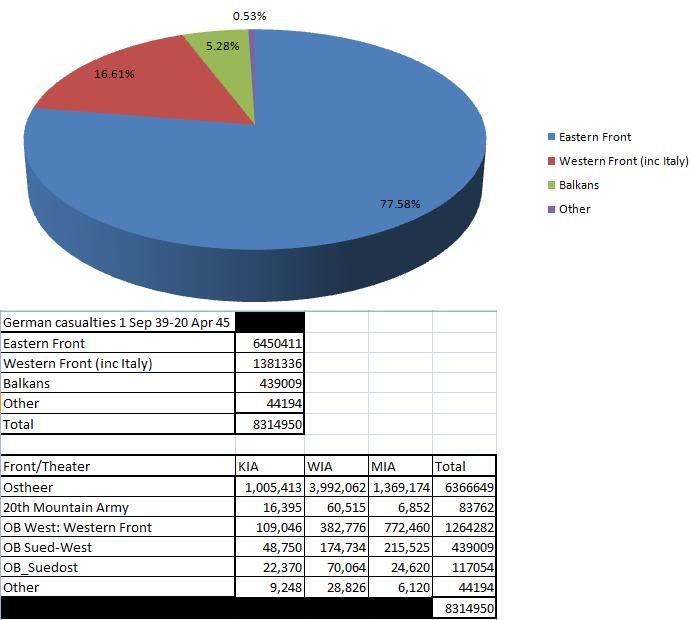So I am not trying to overtly destroy the reputation of the Red Army, but Germany absolutely spanked Russia in WWl, very handily I might add at Tannenburg, and that was in East Prussia. What about Finland in 1940 where the Finns slaughtered them with a far smaller force, which caused the USSR to completely retreat from Lapland. Truth is is that the Red Army was very dysfunctional, under equipped and poorly trained.
Not sure what the effectiveness of the Tsarist military has to do with the performance of the Red Army in the Second World War.
That the Red Army was a hot mess in 1939/40/41 is not contested by anyone, and lends credence to the argument that the Soviet Union could have defeated Nazi Germany on its own. If at the high water mark of Nazi military prowess they couldn't defeat an army best described as a hot mess, what makes you think that they would be able to do so down the line as Nazi supply problems continued to compound themselves?
Have a look at the quality of the Romanian Army
http://warfarehistorynetwork.com/daily/wwii/romanias-disaster-at-stalingrad/. Even the Germans at Stalingrad said the Romanians were totally useless.
The quality (or lack thereof) of Romanian troops in the Eastern Front wouldn't make my Top 10 list on why the Nazis failed in their invasion of the Soviet Union and their defeat at Stalingrad. I'm not even sure they would make it into the Top 20. By the time the Romanian troops started to matter, the Nazis had already lost the war and were in a long, slow, defeat. Anything the Nazis tried to do was limited by their increasingly precarious supply and logistics situation. I'm not generally a fan of the "just read a book" style of posting, but I highly recommend you familiarize yourself with the disastrous state of the Nazi wartime economy and supply situation. (Adam Tooze
The Wages of Destruction is a good place to start.)
I do not agree that the USSR would have had a chance to beat Germany alone. I don't believe they had even a remote chance and to say they did really defies logic and history.
Care to elaborate?
Germany, going into rearmament, was not a wealthy country. In today's terms, they would be roughly equivalent to Iran or South Africa, quality of life was roughly half that of the US and had a GDP per capita of less than Denmark, France, Netherlands, Australia, New Zealand, Switzerland, Britain, Canada, and the US. Total national income was roughly equivalent to the Soviet Union depending on how you count. Once Germany began losing access to international markets in the mid 1930s their entire economy was basically forced to start cannibalizing itself. By themselves, the Soviets or United Kingdom could have beat the Nazis simply by waiting for the Nazis to reach the point they did historically, where they were forced to use seed crops for food. Once that happened, it was all over for the Nazis. The involvement of the United States and the Soviet Union simply ensured that the war ended sooner than it otherwise would have, and without leaving Europe a burned wreck.
Really, the War in the East wasn't just Germany's War, as I've stated it was a multinational contingent.
And? The Korean War involved Ethiopian troops. Doesn't mean that the failures of the UN forces in Korea was down to the poor quality of the Ethiopian troops.
The War in the West resembled more of a professional War with higher quality combatants and a far better understanding of modern tactics and strategies.
Yeahno. Once the Red Army recovered from their "hot mess" period, they were far better than Nazis who placed an over reliance on concentrated armored thrusts and never really learned how to deal with their crippling supply shortage. A cursory look at the battle of Kursk starts to feel like you are trapped in a revolving door of "Nazi armored thrust pushed back Soviet lines, but a lack of resources prevented troops from moving in to support, forcing Nazi lines back".
If you want to talk about individual commanders, Blaskowitz is in the running for top wartime commander -the guy executed a retreat by going
behind Patton- but unfortunately he didn't live long enough after the war to write self-serving memoirs like Guderian.


